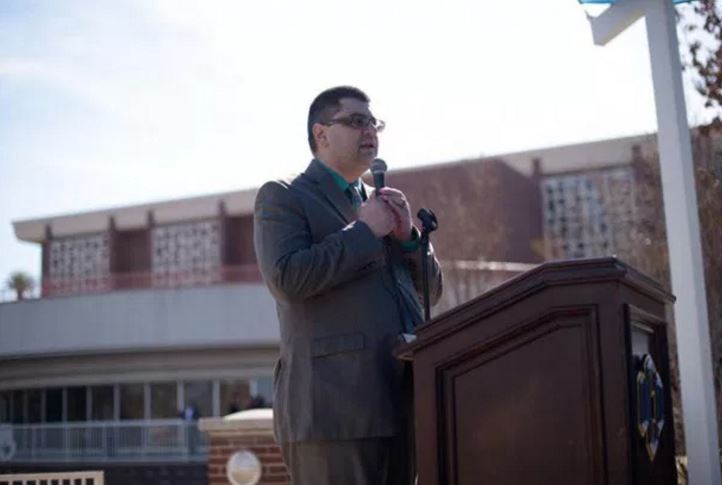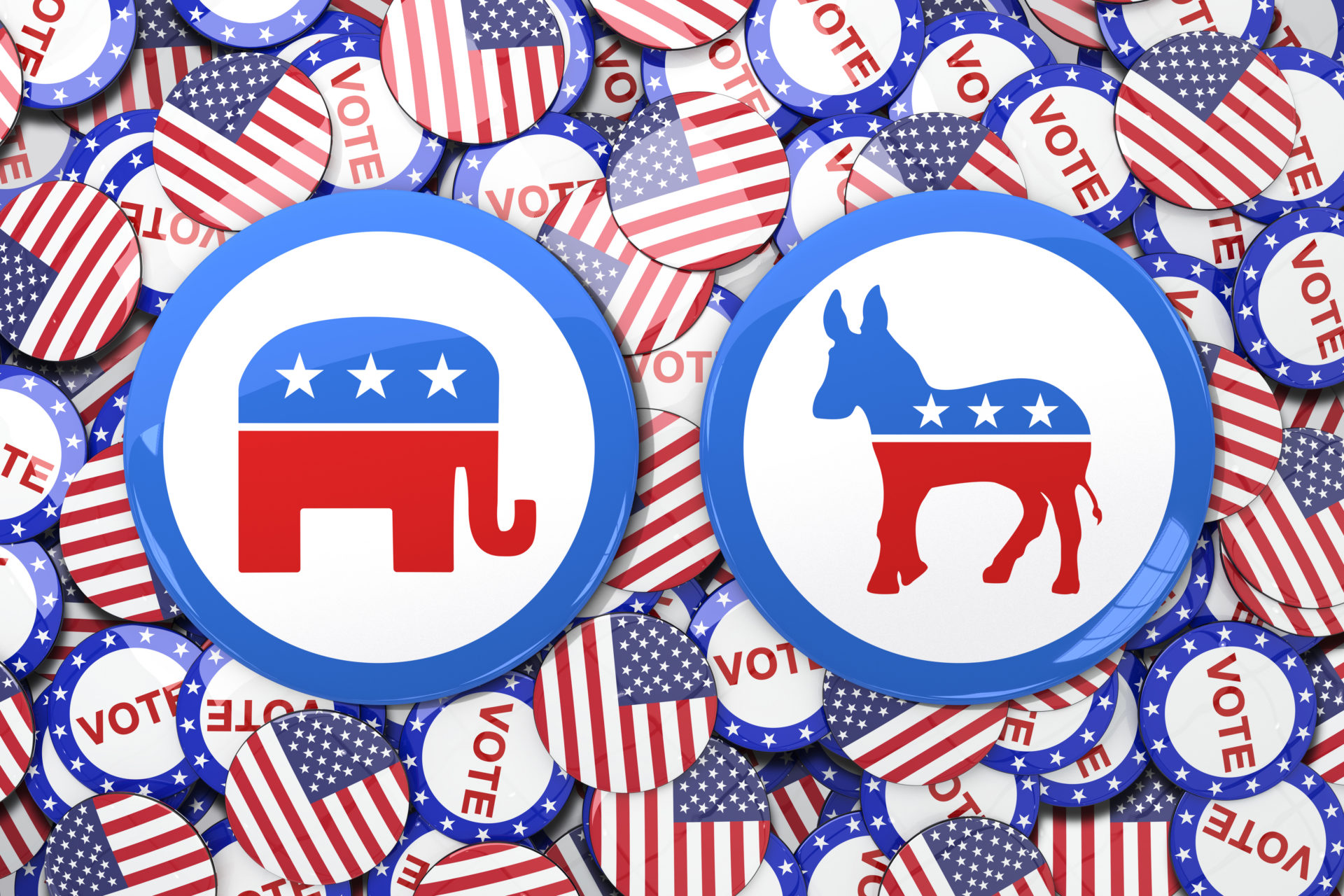In minority communities across the country, the election of Donald Trump as president of the United States ushered with it a sense of fear and heartbreak, which spread and intensified during his first two weeks in office as he signed several executive orders addressing immigration. One bans travel from seven Muslim-majority countries for three months — affecting many immigrants with valid travel visas who were in the process of traveling to or from those countries — and bans refugees from entering the U.S. for 120 days. Another calls for tripling immigration forces to 10,000 officers, deporting undocumented immigrants and pulling federal funding from “sanctuary cities.” Yet another ordered the construction of a 1,900-mile-long wall spanning the U.S.-Mexico border.
Heated debate and legal challenges erupted in the aftermath of Trump’s controversial executive orders and how they were executed.Supporters say the measures are necessary to increase public safety and, as one order states, “protect the American people from terrorist acts by foreign nationals.” However, critics argue the orders don’t solve the nation’s immigration challenges and see the measure restricting travel from seven Muslim-majority countries as a discriminatory “Muslim ban.”
The fear of the unknown and worries for the future are of particular immediacy among the many Hispanics and Muslims who call the Oklahoma City area home.
Giving voice
A day after the November election, University of Central Oklahoma (UCO) student Felix Yanez listened as a peer shared anxiety over Trump overturning DACA (Deferred Action for Childhood Arrivals), an executive order under President Barack Obama allowing young immigrants temporary resident status. Several of his friends and fellow students wept as they discussed the election outcome during a Hispanic American Student Association meeting.
“Immigration targets us the most,” said Yanez, Hispanic American Student Association vice president and a U.S. citizen from Arkansas. “Many DACA students are afraid they wouldn’t be able to continue and achieve their higher education goals. Students worry about being separated from their parents and live in fear of parents or family members getting deported.”
Trump’s campaign platform included promises to stop immigration from Mexico by building a big wall and expelling immigrants who enter the country in violation of civil or criminal law. He made headlines for denouncing Latino immigrants as “criminals” and “rapists.”
Five days after his inauguration, Trump signed his executive orders commanding the Department of Homeland Security to commence building a wall along the U.S.-Mexico border and escalating efforts to find and then deport unauthorized immigrants.
When the university’s Arab Student Organization hosted a #NoBanNoWall rally on UCO’s campus last week, Yanez volunteered to speak to the diverse crowd of students, faculty and staff, alumni and the greater community about the hurt and dismay felt by his fellow students.
As chants of “Love trumps hate” and “No hate, no fear,” echoed off buildings, Yanez declared the border wall a symbol of hatred “that we must fight against.”
People who can illustrate the destruction and potential destruction of executive orders like these must do so, Yanez said.
“People don’t step into the shoes of others,” Yanez said as he referenced the adage “Never judge a man until you’ve walked a mile in his shoes.”
“When I was younger, I didn’t think much about deportations, as they never would impact me or my family,” Yanez said. “After I became educated, read articles and heard from families, I started thinking, ‘What if that happened to me? What if my parents were separated from me?’”

Adam Soltani addresses the crowd at a #NoBanNoWall rally at the University of Central Oklahoma. (Garett Fisbeck)
Policing immigration
During the last weekend of January, just after Trump signed a Jan. 25 executive order, City of Oklahoma City lawyers passed along the news to Police Chief Bill Citty. Oklahoma City Police Department policies and procedures required no changes following the national order, which frees immigration agents to enforce the law and punish so-called “sanctuary cities.”
OKC is not a sanctuary city, and it holds a longstanding pledge to support and cooperate with federal law enforcement agencies, including U.S. Immigration and Customs Enforcement (ICE). A sanctuary city is defined as a municipality that limits involvement with federal agencies like ICE and adopts informal policies that inhibit strict enforcement of federal immigration laws. Trump’s order could strip sanctuary cities of federal funding.
“We are here to serve,” Citty told the Oklahoma City Council during its Jan. 31 meeting. “The police department serves all individuals [regardless] of whether they are here documented or undocumented. Our responsibility is to protect all people within the community.”
Citty said his officers are not instructed to ask about anyone’s citizenship unless it is relevant information to a criminal investigation. Although, if an individual is arrested and booked into the Oklahoma County Detention Center under felony criminal charges, driving under the influence or transporting or sheltering an undocumented immigrant, status is asked.
Under 2007 state immigration law House Bill 1804, jail employees book inmates and list citizenship status. ICE agents can access jail records, obtain warrants, pick up inmates and transfer them to a federal prison. The American justice system is built on holding those charged with crimes and who are innocent until proven guilty in jails before trials. Many believe such a system, when mixed with the new executive order, makes conditions ripe for cases of innocent undocumented people taken into ICE custody and possibly later deported without due process.
The police department remains committed to upholding its past practice of not probing immigration status.
“We don’t feel we have the authority,” Citty said. “We don’t have the manpower. We don’t have the training.”
Despite the department’s message to the Hispanic community, Citty has witnessed apprehension toward officers.
“The fear is very real with the new administration,” Citty said. “There were always challenges. We feel we’ve made a lot of headway and done a lot to build understanding and trust within the community, but it is still out there.”
Fear and hope
Life became increasingly challenging for Muslims after 9/11. The terror attack, planned by Al Qaeda, killed nearly 3,000 people and ignited anti-Muslim hate crimes across the country and fueled the rise of Islamophobia, the fear of Muslims and the Islam religion.
The past few years in Oklahoma — a state that likes to promote religious values and individual freedom — have been particularly brutal, especially after Rep. John Bennett (R-Sallisaw) began endorsing anti-Muslim actions in 2014. That same year, a disgruntled former warehouse worker attacked coworkers in 2014 at the Moore business, stabbing one and beheading another. News of the tragedy made national headlines as police described the suspect as a recent convert to Islam, which fueled rumors of possible terrorist links. However, the Federal Bureau of Investigation determined there was no link.
Islamophoia further spiked during the 2016 presidential campaign, explained Adam Soltani, executive director of the Council on American-Islamic Relations’ (CAIR) Oklahoma chapter.
“Once it reached the level of the highest office in our land, there was really no going back, especially with Trump’s election,”Soltani said.
In Oklahoma, Islamophobia is the subject of a capitol interim study on “radical Islamic terrorism:” a high school teacher posting on Facebook that Muslims should be “butchered” and a Muslim-owned business was vandalized. Often, the actions include passing insults telling Muslims to “go home.”
On the day Trump signed the order, the Muslim civil rights organization received a call from a college student distraught over treatment by a professor.
“It’s going to take time, but we need to change the notion that Muslims are somewhat foreign to this land rather than a part of this country,” Soltani said. “Islam is not foreign to America, but that is what it is made to seem. Our goal is to show people that we are not only apart of the fabric of America, but a vital organ to the American body.”
For every hateful act toward an Oklahoma Muslim, there is a greater amount of community support, which drives two powerful emotions, hope and fear, Soltani said.
“The outpouring of love and support from the interfaith community and the community in general has surpassed the feeling of fear that has resulted from hate crimes or rhetoric. I think that is what makes Muslims hopeful,” Soltani said. “There is also that fear that things will get simultaneously worse. Trump wants to ban refugees and immigrants. Essentially, he is targeting Muslim countries. John Bennett has continued to escalate his anti-Muslim rhetoric.”
American dreams
As president of UCO’s Arab Student Organization, Crystal Sweiss and her peers voiced their disapproval of the president’s travel ban at the #NoBanNoWall rally on campus. The message was about appreciating diversity and moving the country forward.
“Events like this are definitely uplifting, but we’ve never not had hope for the future,” she said. “You have a voice, and if you don’t agree with something, you have the right to express that freely and safely. You can actually have an impact.”
Like Sweiss, classmate Yanez has great hopes for the future. While he believes the country must continue to work to improve race relations, he sees an America more ethically and religiously diverse that can progress toward tolerance, mutual respect and unity.
Soltani, who was born in Kansas, envisions an America in which his young son will never hear the repeated comment, “Go back home.” Soltani has heard the phrase over and over again during his lifetime. Organizations advocating for peace, love and understanding, like CAIR, work to eliminate such hate from American culture.
“We are not only making Oklahoma a better place for Muslims to live, but for all people,” Soltani said.
Print headline: Rallying hope, Community organizations, local students and individuals pull together to promote diversity, unity and progress.

